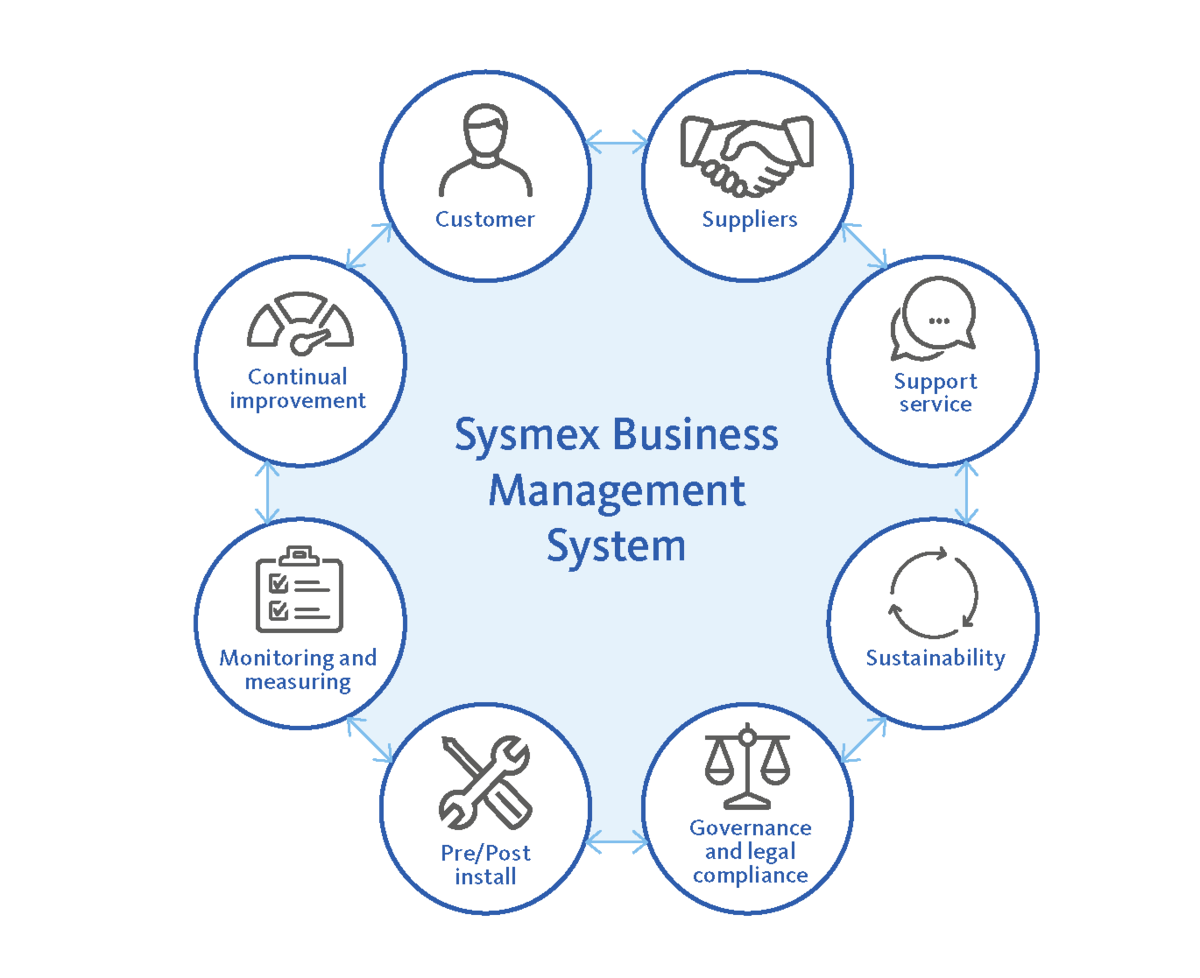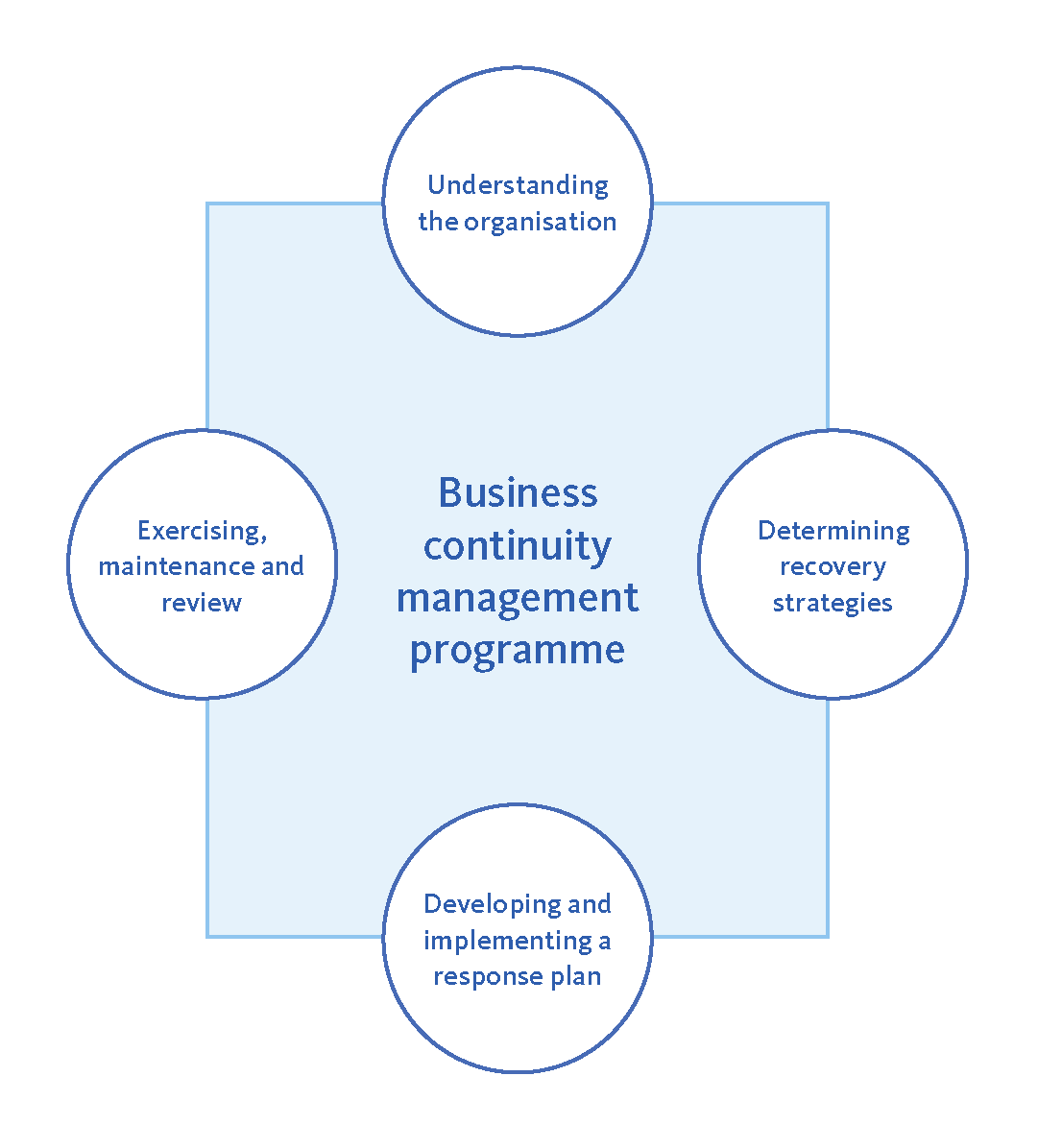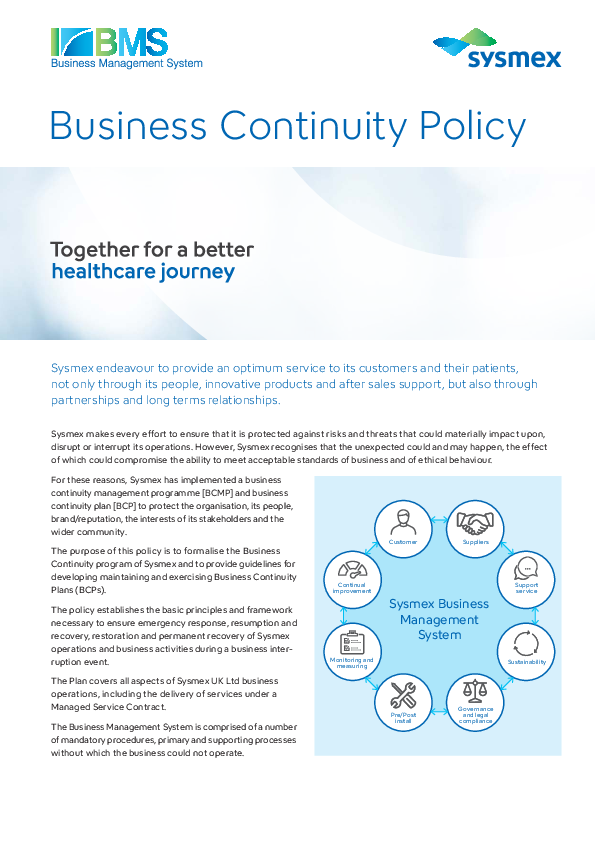Business Continuity Policy
Sysmex endeavour to provide an optimum service to its customers and their patients, not only through its people, innovative products and after sales support, but also through partnerships and long terms relationships.
Sysmex makes every effort to ensure that it is protected against risks and threats that could materially impact upon, disrupt or interrupt its operations. However, Sysmex recognises that the unexpected could and may happen, the effect of which could compromise the ability to meet acceptable standards of business and of ethical behaviour.
For these reasons, Sysmex has implemented a business continuity management programme [BCMP] and business continuity plan [BCP] to protect the organisation, its people, brand/reputation, the interests of its stakeholders and the wider community.
The purpose of this policy is to formalise the Business Continuity program of Sysmex and to provide guidelines for developing maintaining and exercising Business Continuity Plans (BCPs).
The policy establishes the basic principles and framework necessary to ensure emergency response, resumption and recovery, restoration and permanent recovery of Sysmex operations and business activities during a business interruption event.
The Plan covers all aspects of Sysmex UK Ltd business operations, including the delivery of services under a Managed Service Contract.
The Business Management System is comprised of a number of mandatory procedures, primary and supporting processes without which the business could not operate.

Objectives & Scope
Our business management continuity objectives are to:
- Establish and maintain robust and realistic business continuity policies and a practical basis for the management of business continuity.
- Have in place cost-effective resilience and damage mitigation arrangements.
- Recover operations, as rapidly as possible, following an incident or circumstances that prevent an acceptable level of service.
- Ensure operations remain in service for its customers whilst considering and addressing the needs of its employees and families.
The scope of our business continuity plan (BCP) is that it will respond to ‘reasonably foreseeable events’, such as:
- man-made or natural disaster
- non-availability of key facilities, resources and materials
- non-availability of information or communication technology/data
- non-availability of personnel
- denial of access locally or regionally
- regulatory or legal prohibition
- supplier, logistics or distribution failure

Methodology
The Business Continuity Plans (BCPs) have been produced based on feedback from all areas of the business to identify key business continuity issues. Each department has its own BCP, which works alongside the overarching organisation top level BCP. This was utilised to examine the business vertically (primary and secondary activities) and horizontally across the supply chain, and the following activities have been identified as relevant to BCP:
Primary Activities
| Secondary Activities
| External Activities
|
BCPs are reviewed annually for relevant and effectiveness with a view to adding value for our customers and the wider supply chain.
Recovery plans cover all departments within the organisation and ensure consistency and coordination among the various business dependencies, as well as compliance to international standards.
Testing and Training
The Business Continuity Plans will be tested at least annually to ensure credible recovery preparedness. The scope, objectives and measurement criteria of each test will be determined and approved by a member of the Senior Management Team and test results utilised to improve and adapt plans accordingly. Business Continuity training is provided to all employees as part of induction to the organisation and includes information about their roles and responsibilities regarding business resumption and recovery should an incident/event occur.

Sysmex endeavour to provide an optimum service to its customers and their patients, not only through its people, innovative products and after sales support, but also through partnerships and long terms relationships.